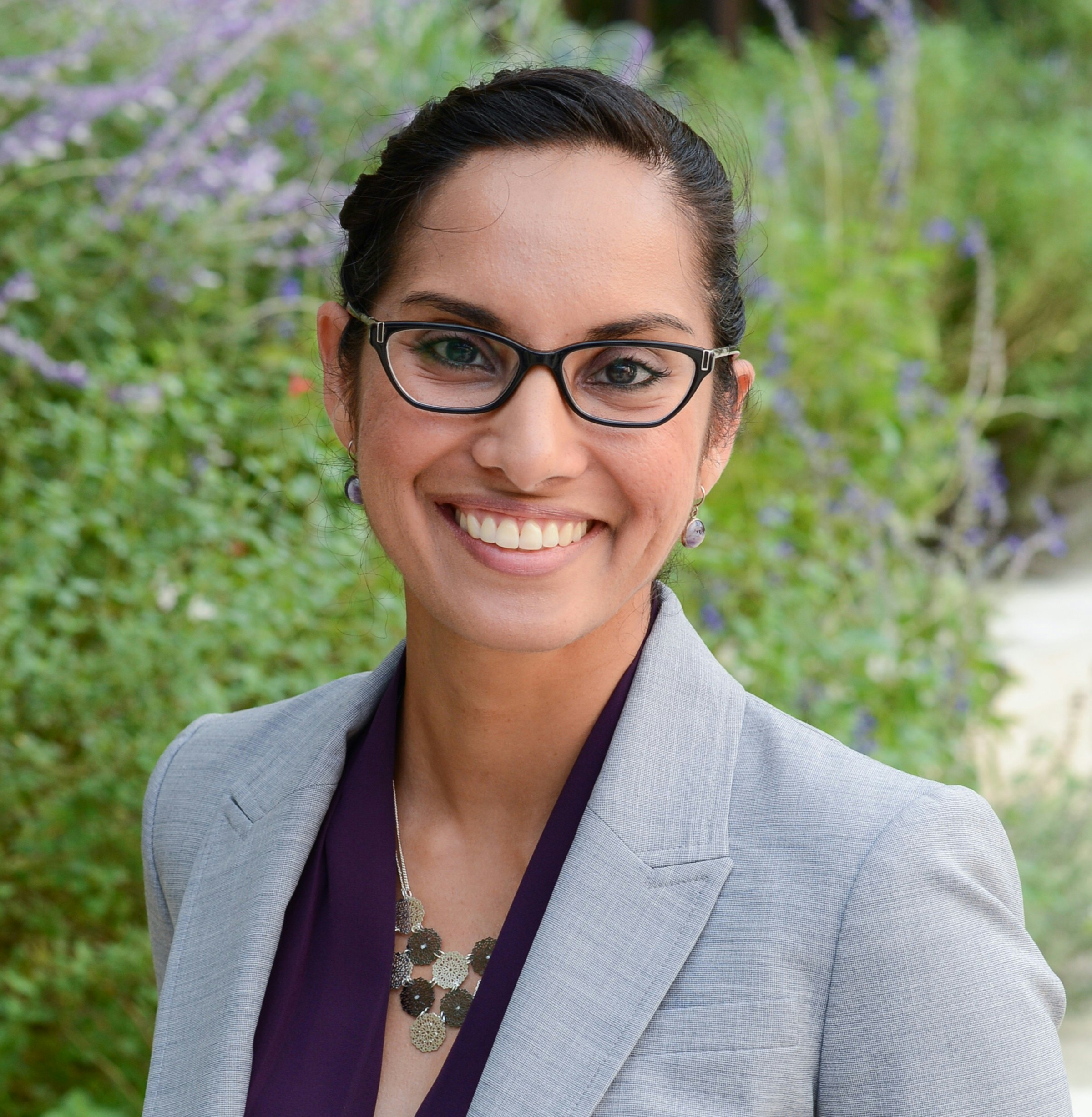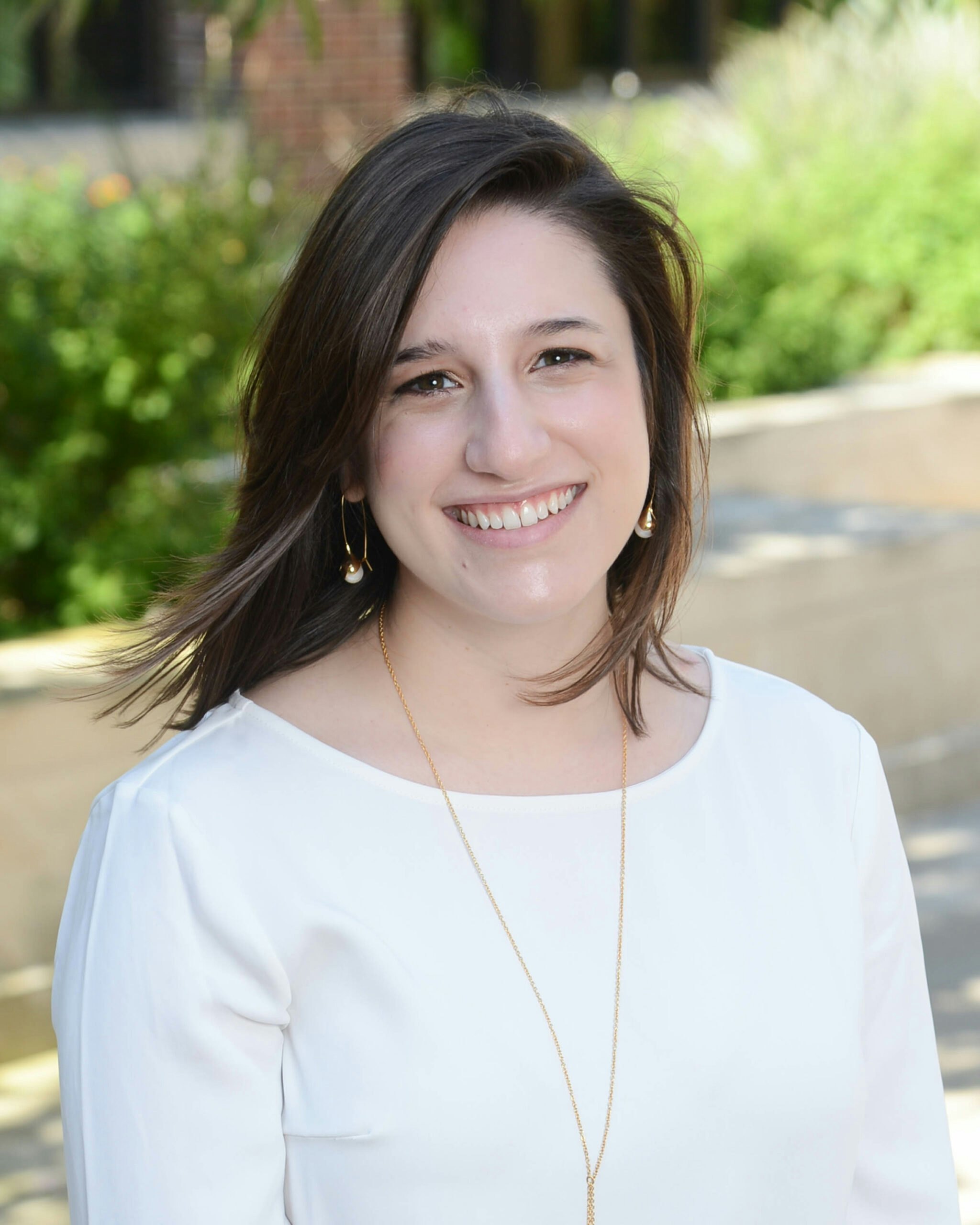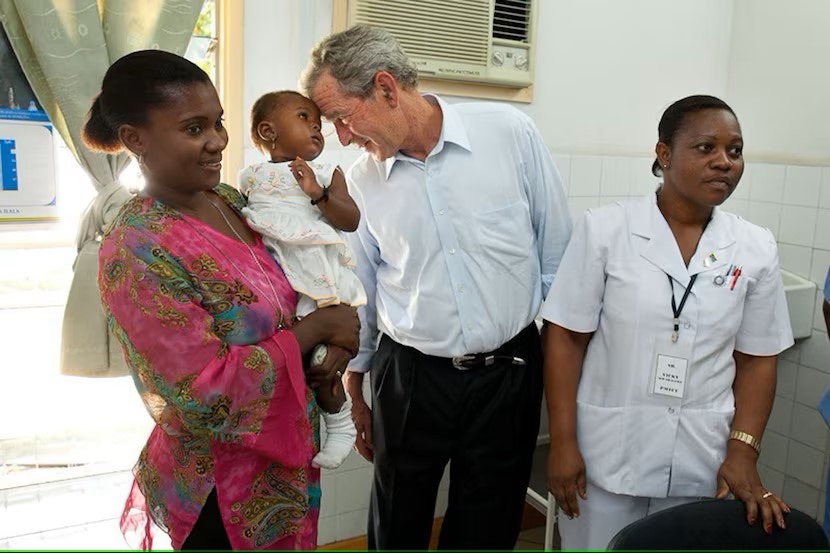We chat with the first female ambassador of Afghanistan to the U.S. about her childhood prior to Taliban rule and her optimism for a peaceful future for Afghanistan.
Roya Rahmani is the first female ambassador of Afghanistan to the United States of America. We chatted with her about her childhood prior to Taliban rule, her optimism for Afghanistan’s peaceful future, and how she is grateful to the United States for their engagement.
-
- Read stories from remarkable Afghan women in We Are Afghan Women: Voices of Hope
-
- The Bush Institute WE Lead program equips women from the Middle East, North Africa, and Afghanistan with the skills to become more effective leaders.
-
- The Bush Institute Women’s Initiative promotes education, healthcare, and economic opportunity for women around the world
Read the episode transcript
Transcript
00:00 Andrew Kaufmann: Roya Rahmani became Afghanistan’s first female Ambassador to the United States on December 14th, 2018. And as Ambassador to the United States, she voices the hope that so many citizens of Afghanistan feel. She is one of many optimistic Afghans who see through the country’s challenges and find opportunities, opportunities for a free and peaceful home.
00:21 Roya Rahmani: I’m optimistic because of the resilience of our people and their resolve for democracy because they have… They are choosing co-existence and harmony and democracy over violence and dictatorship.
00:37 AK: When Ambassador Rahmani was entering college in the early 1990s, her country was taken over by the Taliban, and her world changed. Her family and many others were forced to leave their homes, and women’s rights were restricted. While the country works toward peace with the Taliban, she is grateful to the United States for their engagement, and she is thankful that the women of Afghanistan are finding their voices again. I’m Andrew Kaufmann, and this is The Strategerist, presented by the George W. Bush Institute.
[music]
01:08 AK: What happens when you cross the 43rd president, late night sketch comedy, and compelling conversation? The Strategerist, a podcast born from the word strategery, which was coined by SNL, and embraced by the Georgia W. Bush administration. We highlight the American spirit of leadership and compassion through thought-provoking conversations, and we’re reminded that the most effective leaders are the ones who laugh.
[music]
01:36 AK: We’re joined today by Ambassador Roya Rahmani, who is the first female Afghan Ambassador to the United States. Ambassador Rahmani, thank you so much for joining us.
01:46 RR: Thank you for having me.
01:47 AK: We are also co-hosted today by Farhat Popal, who is our Senior Program Manager in the Women’s Initiative at the Bush Institute. Farhat, thank you for helping today.
01:56 Farhat Popal: Thank you for having me, it’s a privilege to be sitting with you all here today, and as an African-American woman, I’m thrilled to see you on this post, Ambassador Rahmani.
02:05 RR: A pleasure, thank you.
02:06 AK: Well, Ambassador Rahmani, we wanna start going back in time a little bit to your childhood. You grew up… Afghanistan has had a complicated history, and you grew up in that country. Could you tell us what your childhood was like in Afghanistan?
02:21 RR: Thank you for the question, and thank you for this opportunity. Nice to be sitting with all of you today. When I was growing up in my childhood, unfortunately, there was always a conflict happening in my country. I grew up in the city of Kabul, and my memories of my childhood is a beautiful city surrounded by the trees, where every season is introduced by a different kind of flower and fruits. This is how we got the sense of the year moving forward. Unfortunately, many of my generation has only seen the country in conflict; conflict which has been preventing us from meeting our full potential. However, as a child, your world is different and still, as I was growing up, I believed that that was the best country in the world. I still do believe and love my country very much. I thought it was… As a child that I was, I was disappointed basically to hear that it wasn’t the largest country in the world, [chuckle] because this is what my imagination was for it. And I was hoping to have every opportunity growing up as an equal citizen which, as life unfolded, came to be not true, and I realized that it was not going the way I had hoped for in my childhood.
04:21 RR: I grew up in Afghanistan in the years that the conflict slowly moved from outside to the center, to the point that, together with my family when I was a teenager, were forced to flee our home and our town because we couldn’t take it anymore; that it was bombarded by rockets and the missiles hitting the ground on daily basis. And like most Afghans, we travelled to the neighboring countries, tried to resettle and find a way to survive.
05:10 AK: Fast forwarding then to today, you mentioned just then that you had dreams as a young girl that women would be full participants in the Afghan citizenry. And today, Afghanistan has made gains recently, but there are peace talks happening right now. How important is it that women are involved in those peace talks?
05:36 RR: It is certainly incredibly important. So where I left off, I said that was aspiration for me as a child growing up in Afghanistan; life proved it wrong. And as I moved on, we went through the phases to the point that women were pushed into the… Inside the doors to the extent that their presence in public was not tolerated; they had to be escorted by a male escort. To the point that their very presence was so intolerable that they had to be covered in burkas, literally having a cage in front of their eyes through which that they could see the world. These burkas actually even covered their peripheral vision, so they were only able to see through the mesh straight ahead in a blurred way. It is not what happened to the women; this is what happened to our society back then. This is how they strategically pushed the progress, the potential of the society; they put our potential, our aspiration, our hopes and possibilities behind this mesh of the burkas, under which that they were putting women.
07:14 RR: Fast-forwarding from the area that there was darkness and hopelessness, to the 2011, which turned out that due to the very unfortunate incidents that happened in the United States, there was this resolution that allowed for the intervention in Afghanistan. And then that was the moment of peace. That was the moment of peace because that intervention, although it was militaristic, they went with the planes and with bombing the insurgents, but that was peace. This is how peace came to Afghanistan because this is how hope came, because this is how freedom came; this is how potential came. And we have traversed a very steep trajectory of progress, which is unfortunately not something that you hear through the media outlets because it is usually the incidences that are making the news, but the progress that we have had in the past 17 years is tremendous.
08:29 RR: So for everyone who would listen to this, I would have two things to say: One is to express our gratitude for your contribution and sacrifices, and to assure them that it has not gone in vain. Not only that, but it has contributed to tremendous improvement and achievement in the life of the people who are going to never forget that, and will continue to remain your loyal partner. We have now an insurgency still actively going on where we have over 20 different groups transnationally involved in the conflict in Afghanistan, and our forces are fighting in the forefront of this phenomena, trying to secure our citizens, our nation, but also to prevent their spread in the global… Or to the rest of the world.
09:31 RR: So peace is the necessity. Peace is something we absolutely want, but peace with the definition that the guns are silenced, because they were silenced, or sort of, between ’96 to 2002, somewhat in Afghanistan, too. But that was not peace; that was basically paralyzing society. That was taking the society in this stage of narcosis, basically, that everybody was just walking as a zombie and living in these ghost places, not having any hopes. Peace means an environment where people can live without fear, that there is rule of law, that there is institutions that are functioning, that there is protection for the right of the civilians and their freedom. This… And more than everything, having the young population that we have, peace means the possibility where they could continue to have aspirations like I had when I was a child, to live like a citizen, like a free human being, like everybody aspires to in the world.
10:55 AK: What are your hopes and dreams for yourself and your family, and with that as a backdrop, are you optimistic for Afghanistan’s future as you sit in this room today?
11:06 RR: I am very optimistic, and I’m optimistic because of the changes, particularly those that happened over the past 17 years. I’m optimistic because of the resilience of our people, and their resolve for democracy, because they have… They are choosing co-existence, and harmony and democracy over violence and dictatorship. I am optimistic because we have a human capital today that we never had in the course of history. So there is enough reasons for us to be optimistic. I’m optimistic because there is shift in mindsets, even from my own generation as I have been growing up. I see the 20-years-olds today, the women, the girls, they are not only thinking, I need to struggle to be somewhat financially independent or to be able to have a place in the family decision-making apparatus and whatnot. But they are thinking what is it that they enjoy and do in life? They’re thinking of sports; they’re thinking of music. And we have so many examples of that; the brilliant examples that never cease to surprise me, but at the same time energize me.
12:35 FP: Ambassador, you’ve overcome so many barriers to be where you are. Is there anyone in your life who has consistently been your champion?
12:43 RR: Thank you for this question. I’m a very lucky person, and I’ll tell you why I say this. There’s many, many reasons, but one of the reasons is that there has been so many that inspired me, and I will tell you who these many people are that inspires me. In particular two groups: One is the group of people who are listening right now to what I say. This group inspires me because they care about humanity, because they care about what’s happening on the other side of the globe, and they can relate to it. And they know that in this world, it has an impact in everybody’s life.
13:27 FP: Absolutely.
13:28 RR: This is their resolve that inspire me. When I get tired and exhausted, I think about how somebody who has never been to my country thinks of women’s rights issues, knows that how important that is. That gives… Energizes me. That’s one group. Another group that have been the champions in my life are the very Afghan women. At any level they have been, their resilience, their fight and struggle, is… Every time that… And it has happened many times, I must admit, that I say, “You can’t do this; this is impossible.” And I just look around, and I see a woman carrying a baby, holding two children’s hands, having their backpacks and their bag, and struggling still with her own presence and societal challenges and norms and whatnot, going to work, and is still trying to save some money that after work she would like to continue her education and do some courses here and there. And yet taking care of the family, and yet challenging the norms, and yet smile and be hopeful, and teach the lessons of hope for her children. Those mothers who continuously lose and have lost their sons and daughters to this war, whether it is in United States or Europe or in Afghanistan, that’s what inspires me, because their courage is something I don’t have. I don’t really have it, but I totally admire them and they are my champions.
15:24 FP: I think you absolutely have that courage, and you sell yourself short. That resilience has also been passed down across four decades. I think that’s important for our listeners to remember as well.
15:35 AK: And that… You used the phrase that was almost the exact title of a book the Bush Institute put out a couple of years ago called We Are Afghan Women: Voices of Hope, and it’s stories of these women that you’re talking about, that live in Afghanistan, and are truly making the best lives they can for their families. And Farhat, you’re from Afghanistan, and you know better than anybody how inspirational these women are.
16:01 FP: Absolutely. I think of my mom who was a journalist in Afghanistan, and she lost her life, her profession, everything that she had worked so hard for, and she came here to the US. And I was very young at the time, but she sacrificed herself in the same way that so many Afghans have over the last 40 years of war for the lives of their children and the futures of their children. And that’s not something that is specific to Afghans here in the US, that’s specific to Afghans everywhere.
16:39 AK: One of the things that we love talking about at the Bush Institute also is education. How important is science, math, and technology to the future of Afghan’s youth, and particularly with young girls?
16:52 RR: I’m glad you asked that question. It’s crucial. It’s absolutely critical. Today, everybody, one way or another, are the beneficiaries of the technological advancement. Sometimes even it is used in the ways that we wish it wasn’t. [chuckle] But in today’s world, science, technology, and maths are absolutely crucial to the development of the societies, and youth needs to have those opportunities. I have seen first-hand when these were taken away from the schooling system, from the education system, and what happened, because youths everywhere have these hungry minds that are ready to absorption. When there is a vacuum, when it is not filled with the chances and possibilities and imagination that leads them to the right direction, this is where the possibility for the extremism and violence grows.
18:28 RR: We all know that a lot of people who surrender to the extremist and violent ideologies, they are usually hopeless than the rest. They don’t find anything better. And then for those who use commercialization of heaven as an instrument of policy, they can take advantage of that. So this is why the United States engagement in Afghanistan has been so crucial for the safety and security of the US, of the world, of the region, and particularly of Afghanistan also, because the fight is not only in terms of the military operation, which of course at the first place provided the enabling environment for these possibilities because it was an active insurgency, and it still is. But we are grateful to have this support to counter that. But the possibilities it has provided in terms of education is the key, and it will remain the key. If there is this vacuum for these values to grow and nurture, the extremist ideology and the violent mentality will grow. So there is nothing more important to that.
20:15 RR: And we shouldn’t… I’m hoping for a time that there wouldn’t be this question for girls because why should we even separate them? They are part of a society, it is just… For all human being, whether they are girls and boys, it has been due to this unfortunate inequality that still we have to fight for this. And the world will be a better place for all of us when we talk without mentioning that it is for girls or boys, because it should be given that the girl should have equal opportunities in all of these, as the boys do.
20:54 AK: Absolutely. We’re running a little out of time, but we really appreciate you speaking so passionately about this topic. And Mrs. Bush has long been a supporter of Afghan women, and as an institute we’re so honored to have you here today.
21:10 RR: Thank you for having me.
[music]
21:15 AK: If you enjoyed today’s episode and would like to help us spread the word about The Strategerist, please give us a five-star review and tell your friends to subscribe. We’re available on Apple Podcasts, Spotify, and all the major listening apps. If you’re tuning in on a smart phone, tap or swipe over the cover art. You’ll find episode notes with helpful information and details you may have missed. The Strategerist was produced by Ioanna Papas at the George W. Bush Institute in Dallas, Texas. Thank you for listening.
































